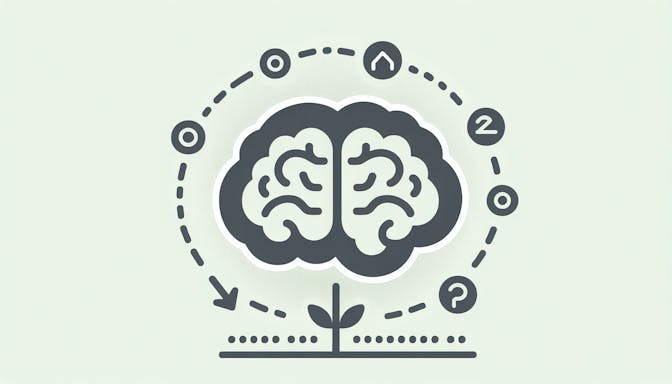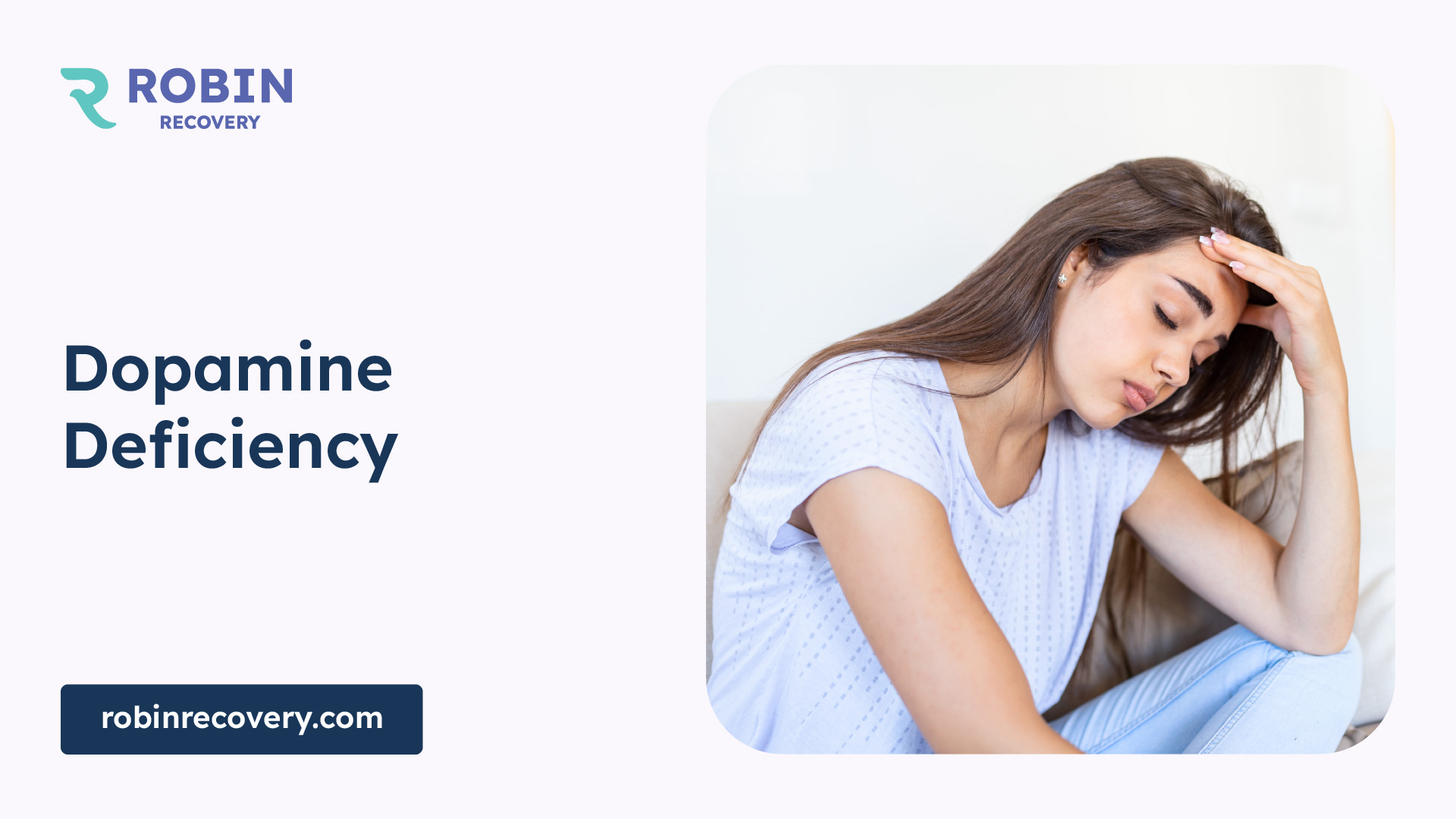Dopamine Deficiency

Understanding Dopamine Deficiency
Dopamine deficiency is a less commonly known, but significant issue that can have multiple impacts on an individual's health and well-being. Understanding the role of dopamine in the body and the symptoms of its deficiency can help in identifying and managing this condition.
Role of Dopamine in the Body
Dopamine is a chemical messenger in your brain that plays a crucial role in various bodily functions. It governs motivation, mood, movement, memory, sleep, and behavior regulation, and is central to the brain's reward system. Dopamine rewards you with a euphoric feeling whenever you engage in a beneficial behavior, thus motivating you to repeat the behavior.

In addition to these roles, dopamine also plays a key role in motor skills, cognitive abilities, and reproduction. This wide range of functions underscores the importance of maintaining optimal dopamine levels in the body.
Symptoms of Dopamine Deficiency
A deficiency in dopamine can cause changes in mood, memory, sleep, and social behavior. This can manifest as feeling less motivated, apathetic, and listless, and can also affect your ability to concentrate. Low levels of dopamine have been linked to several medical conditions like depression, attention deficit/hyperactivity disorder, chronic fatigue, fibromyalgia, chronic pain, addiction, and Parkinson’s disease.
Recognizing these symptoms is the first step towards addressing dopamine deficiency. Early intervention can help manage the symptoms and prevent further health complications. It's important to consult with a healthcare professional if you're experiencing these symptoms, as they can provide guidance on appropriate treatments and lifestyle changes to boost dopamine levels.
Causes of Dopamine Deficiency
Understanding the causes of dopamine deficiency is critical for managing conditions related to it. Dopamine deficiency can be triggered by a range of lifestyle factors and health conditions. Some of the common causes include sleep deprivation, obesity, long-term drug abuse, and stress.
Sleep Deprivation and Dopamine
Sleep deprivation can significantly reduce the number of dopamine receptors in the brain, which in turn impacts the transmission and production of dopamine. This connection highlights the importance of good sleep habits for maintaining healthy dopamine levels.
Impact of Obesity on Dopamine
Obesity is another contributing factor to dopamine deficiency. Similar to sleep deprivation, obesity can lead to a reduction in dopamine receptors in the brain. This correlation underscores the critical role of maintaining a healthy weight for optimal dopamine production [2].
Effects of Long-Term Drug Abuse
Long-term drug abuse can also result in a reduction in dopamine receptors. When drugs artificially stimulate dopamine production, the brain intervenes to counteract this sustained increase, resulting in a decrease in the number of dopamine receptors. This dynamic illustrates the detrimental effects of long-term drug abuse on dopamine levels.
Influence of Stress on Dopamine Levels
Stress can also affect the body's production of dopamine over time, potentially leading to a deficiency of the neurotransmitter. This association reveals the importance of stress management techniques in maintaining healthy dopamine levels [2].
Understanding these causes of dopamine deficiency is crucial for individuals who are striving to manage their dopamine levels effectively. By addressing these factors, one can make lifestyle changes that may help alleviate symptoms associated with dopamine deficiency. In the next sections, we will look at health conditions linked to dopamine deficiency and explore strategies to manage and improve dopamine levels.
Health Conditions Linked to Dopamine Deficiency
A deficiency in dopamine, a crucial neurotransmitter in the body, can be associated with several health conditions. This is due to its essential role in controlling movements, emotional responses, sleep, memory, learning, and concentration. This section explores how a dopamine deficiency can impact conditions such as depression, Parkinson’s disease, and attention deficit hyperactivity disorder (ADHD).
Depression and Dopamine
Depression, a common mental health disorder, has been linked to low levels of dopamine. Clinical symptoms such as tiredness, moodiness, and a lack of motivation to complete tasks can indicate a potential dopamine deficiency. Individuals with depression often report feeling a lack of pleasure or interest in activities they once enjoyed, which can be attributed to inadequate dopamine levels. As dopamine plays a crucial role in regulating mood and emotional responses, this deficiency can significantly exacerbate depressive symptoms.
Parkinson’s Disease and Dopamine
Parkinson’s disease, a degenerative disorder of the central nervous system, is also associated with dopamine deficiency. This condition is characterized by the loss of dopamine-producing cells, leading to problems with movement control. Typical symptoms of Parkinson's disease include tremors, stiffness, and balance problems, all of which are caused by inadequate dopamine levels in the brain. Because dopamine plays a key role in coordinating smooth and controlled movements, a deficiency can significantly impact a person's quality of life.
ADHD and Dopamine
Attention deficit hyperactivity disorder (ADHD), a neurodevelopmental disorder, may also be linked to dopamine deficiency. This condition is characterized by issues with focus, attention, and impulsive behavior. The use of stimulant medications to treat ADHD is designed to increase the availability of dopamine in the brain, thereby enhancing focus and reducing impulsivity. A deficiency in dopamine can make it challenging for individuals with ADHD to manage their symptoms, thereby impacting various aspects of their daily life, including academic performance and social interactions.
In summary, a deficiency in dopamine can significantly impact various health conditions, including depression, Parkinson’s disease, and ADHD. Understanding the role dopamine plays in these conditions is crucial for effective diagnosis and treatment. It is important for individuals experiencing symptoms associated with dopamine deficiency to seek medical advice for appropriate management and treatment.
Managing Dopamine Deficiency
Identifying and treating dopamine deficiency is critical to the overall wellbeing of an individual. Understanding the diagnostic approaches and treatment options for dopamine deficiency can be beneficial in managing this condition.
Diagnostic Approaches for Dopamine Levels
Dopamine deficiency is not routinely diagnosed through blood tests alone, as these tests do not provide sufficient information on how the brain responds to dopamine. Healthcare providers typically evaluate the medical history, symptoms, and may order specific tests like a dopamine transporter test for conditions like Parkinson’s disease.
Diagnosis involves gathering medical history, lifestyle considerations, symptom assessment, physical examination, and sometimes additional tests such as a dopamine transporter test for suspected Parkinson’s disease.
Treatment Options for Dopamine Deficiency
The treatment for dopamine deficiency varies depending on the underlying cause. It may include medications, lifestyle changes, and natural remedies.
Supplements and natural remedies can help increase dopamine levels. Examples of supplements that may raise dopamine levels include tyrosine, phenylalanine, and omega-3 fatty acids [4].
While natural remedies to increase dopamine levels can be considered, further research is needed on the effects of food on neurotransmitters like dopamine [4].
When addressing dopamine deficiency, it's crucial to consult with a healthcare provider to ensure that the chosen treatment approach is safe and effective based on the individual's unique circumstances and medical history.
Remember, managing dopamine deficiency is a measure to maintain the brain's balance and contribute to overall wellness.
Natural Ways to Boost Dopamine Levels
In managing dopamine deficiency, natural methods can be effective in boosting dopamine levels in the body. Here, we explore how tyrosine, diet, probiotics, and velvet beans impact dopamine production.
Importance of Tyrosine in Dopamine Production
Tyrosine, an amino acid, plays a crucial role in the production of dopamine. This amino acid can be consumed from protein-rich foods such as turkey, beef, eggs, dairy, soy, and legumes. By increasing tyrosine and phenylalanine (another vital amino acid), dopamine levels in the brain can be raised, promoting deep thinking and improving memory Healthline.
Influence of Diet on Dopamine Levels
Diet can significantly impact dopamine signaling in the brain. For instance, high intake of saturated fats (found in animal fat, butter, full-fat dairy, palm oil, and coconut oil) can disrupt dopamine signaling when consumed in large amounts. According to a study, rats consuming 50% of their calories from saturated fat showed reduced dopamine signaling in their brain's reward areas compared to those consuming the same amount of calories from unsaturated fat Healthline. Conversely, consuming processed sugars like candy and soda can temporarily and artificially increase dopamine levels but can affect the rate at which the body produces it naturally Verywell Mind.
Role of Probiotics in Dopamine Production
Probiotics, the beneficial bacteria in our gut, can also produce dopamine, which may impact mood and behavior. Studies have suggested that consuming large quantities of probiotic bacteria can reduce anxiety and depression symptoms in both humans and animals. Further research is required to understand the effects of probiotics on dopamine production and mood comprehensively Healthline.
Velvet Beans and Dopamine
Velvet beans, or Mucuna pruriens, are a natural source of L-dopa, the precursor molecule to dopamine. Consuming these beans can help increase dopamine levels, especially in individuals with Parkinson's disease. It's essential, however, to consult a healthcare professional before making any dietary changes and follow dosage recommendations Healthline.
In conclusion, these natural ways to boost dopamine levels can be beneficial in managing dopamine deficiency. However, as with any treatment, it's crucial to consult with a healthcare provider before making any significant changes to your lifestyle or diet.
Lifestyle Factors Affecting Dopamine
When considering the factors that impact dopamine levels in the body, lifestyle choices particularly play a significant role. Two such factors are exercise and sleep quality, both of which greatly influence dopamine deficiency.
Impact of Exercise on Dopamine Levels
One of the most effective natural ways to increase dopamine levels is through regular exercise. When you engage in physical activities, your brain releases dopamine, which not only improves your mood but also enhances your overall brain health. Regular exercise has been proven to be very important for your brain’s health and can help you boost your dopamine levels.
Exercise can be as simple as a walk around the block, a bike ride, or a yoga session. The key is to choose activities that you enjoy and can sustain in the long run. As you build exercise into your routine, you'll likely notice an improvement in your mood and overall well-being, thanks in part to the dopamine release triggered by these activities.
Sleep Quality and Dopamine Receptors
Sleep is another vital factor that influences dopamine levels. Adequate sleep is necessary for the healthy functioning of dopamine receptors in the body. When you don’t get enough sleep, dopamine receptors can be adversely affected. Research has linked sleep deprivation to the suppression of some dopamine receptors.
This implies that ensuring quality sleep can help maintain optimal dopamine function. Good sleep hygiene practices include maintaining a regular sleep schedule, creating a quiet and comfortable sleep environment, and avoiding electronic devices close to bedtime.
In conclusion, both exercise and sleep play significant roles in managing dopamine levels. Incorporating regular exercise into your daily routine and ensuring sufficient sleep can help maintain balanced dopamine levels, contributing to improved mood and cognitive function. Remember, a healthy lifestyle is key to managing dopamine deficiency and enhancing your overall well-being.
References
[1]: https://www.verywellmind.com/natural-ways-to-increase-your-dopamine-levels-5120223
[2]: https://www.verywellmind.com/common-symptoms-of-low-dopamine-5120239
[3]: https://www.medicalnewstoday.com/articles/320637
[4]: https://my.clevelandclinic.org/health/articles/22588-dopamine-deficiency
